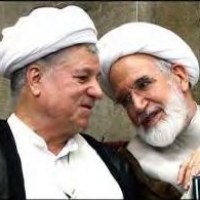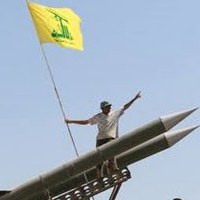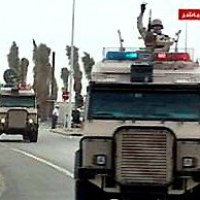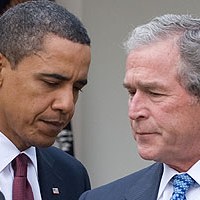![]()
Sun, Sept 12, 2010 | The Meir Amit Intelligence and Terrorism Information Center
Growing Criticism of Ahmadinejad’s Plan to Appoint Special Envoys On Foreign Affairs
The president’s plan to appoint some of his close associates as special envoys on foreign affairs has been increasingly criticized by Iran’s media and political establishment this week. The president recently announced his intention to appoint his office chief Esfandiar Rahim Masha’i, Hamid Reza Baqa’i, Mohammad Mehdi Akhundzadeh, and Abolfazl Zohrevand as his special envoys on Middle Eastern, Asian, Caspian Sea, and Afghan affairs, respectively.
A commentary article published last week on the Iranian Diplomacy website listed several possible explanations for the president’s decision to appoint special envoys: disagreements with Foreign Minister Manouchehr Mottaki, a close associate of Majles speaker Ali Larijani, who is considered one of the president’s political opponents; the president’s intention to keep his controversial office chief Rahim Masha’i away from internal affairs by appointing him as an envoy on Middle Eastern affairs; and his desire to appoint his confidants as envoys to promote various initiatives in foreign policy, a sphere to which he ascribes a great deal of importance (Diplomasi-ye Irani, August 25).
The critics of the president’s decision claim that the appointment of the special envoys will create an unnecessary redundancy in the foreign policy and compromise the Foreign Ministry’s authorities, and that the candidates for the president’s envoys are not sufficiently qualified for such positions.
Criticism against the president has stepped up in recent days after Supreme Leader Ali Khamenei implicitly criticized his decision. During a meeting with Ahmadinejad and his government members held last week, Khamenei said that the government must prevent redundancy in various spheres, including the sphere of foreign policy. He further added that ministers must be allowed to work within their spheres of responsibility and in accordance with their powers (various news agencies, August 30).
Following the Supreme Leader’s statement, three Majles members have called on the president to reverse his decision. During the weekly Majles session held Sunday, Majles members Asadollah Badamchian, Hossein Sobhani-Nia, and Mohammad Dehqan claimed that the appointment of the envoys creates unnecessary redundancy in foreign policy and goes against the Supreme Leader’s recommendations (Mehr, September 5).
The Majles Research Center also released a special statement claiming that the envoys’ appointment contradicts clause 127 of Iran’s constitution, requiring that the appointment be approved by the government and brought to the attention of the Majles to examine the decision. The center further claimed that while it is permissible to appoint special envoys to deal with specific issues, it is wrong to make envoys responsible for geographic areas that fall under the responsibility of the Foreign Ministry. The center also criticized the president’s candidates for special envoys, claiming they do not have the required personal and professional skills (Fars, September 5).
Iranian media have also strongly criticized the president’s decision in recent days. Farda, a website affiliated with the pragmatic conservative faction, claimed that the president’s plan goes against the recommendation voiced by the Supreme Leader, who stressed that it is the Foreign Ministry that is responsible for planning Iran’s foreign policy and relations with other countries. Despite the Supreme Leader’s recommendation, not only has the president not reconsidered his decision, it has been reported in recent days that he intends to appoint additional special envoys on African and South American affairs to operate outside of the Foreign Ministry. Iran’s public opinion, the website said, expects the government to act in accordance with the Supreme Leader’s recommendations (Farda, September 6).
The reformist daily Mardom Salari also criticized the decision, claiming it contradicts the Supreme Leader’s recommendation. The daily mentioned that, following last year’s presidential election, the president refused to reconsider his decision to appoint Rahim Masha’i as his first deputy, and was forced to withdraw the appointment (and appoint Masha’i as his office chief) only after the Supreme Leader’s explicit instruction on this matter was published by the Majles deputy speaker. The daily claimed that, even in the conservative camp, criticism of the president is constantly on the rise, and that developments in the affair will prove the extent of the president’s loyalty to the Supreme Leader (Mardom Salari, September 6).



 RSS
RSS











Growing Criticism of Ahmadinejad’s Plan to Appoint Special Envoys On Foreign Affairs | #iran #ahmadinejad #freeiran http://j.mp/9Nv4hF
Growing Criticism of Ahmadinejad's Plan to Appoint Special Envoys … http://bit.ly/cVKfo1
RT @CrethiPlethi: Growing Criticism of Ahmadinejad’s Plan to Appoint Special Envoys On Foreign Affairs | #iran #ahmadinejad #freeiran http://j.mp/9Nv4hF
Ho il piacere di aver conosciuto Ambasciatore Iraniano,Abolfazl Zohrevand a Roma, ora incaricato a Kabul. Apprezzo in particolare le sue idee per la pacificazione e la riabilitazione socio economica in Afganistan.
Il Presidente ACS_emergency Burnelli Vincenzo
**Translation: I am pleased to have met the Iranian ambassador, Abolfazl Zohrevand in Rome, now in charge in Kabul. I particularly appreciate his ideas for peace and socio-economic rehabilitation in Afghanistan.
The President Vincent ACS_emergency Burnelli**
@Burnelli Vincenzo — We prefer comments in English, but we also accept comments in Dutch, Hebrew, Arabic, Turkish and Persian. Italian is not on this list. Thank you.